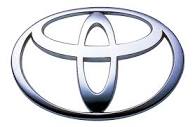Tacoma 4WD V6-4.0L (1GR-FE) (2006)
/Page-407001.png)
Compression Check: Testing and Inspection
INSPECT COMPRESSION
a. Warm up and stop the engine.
b. Remove the circuit opening relay.
c. Remove the V-bank cover.
d. Remove the air cleaner assembly.
e. Remove the ignition coils.
f.
Remove the spark plugs.
g. Inspect the cylinder compression pressure.
(1) Insert a compression gage into the spark plug hole.
SST 09992-00500
(2) Fully open the throttle.
(3) While cranking the engine, measure the compression pressure.
Compression pressure: 1,300 kPa (13.3 kgf-cm 189 psi)
Minimum pressure: 1,000 kPa (10.2 kgf-cm2, 145 psi)
Difference between each cylinder: 100 kPa (1.0 kgf-cm2, 15 psi)
NOTICE:
^
Use a fully-charged battery so the engine speed can be increased to 250 rpm or more.
^
Inspect the other cylinders in the same way.
^
Measure the compression in as short a time as possible.
(4) If the cylinder compression is low, pour a small amount of engine oil into the cylinder through the spark plug hole and repeat steps (1)
through (3) for cylinders with low compression.
^
If adding oil increases the compression, the piston rings and/or cylinder bore may be worn or damaged.
^
If pressure stays low, a valve may be stuck or seated improperly, or there may be leakage from the gasket.
